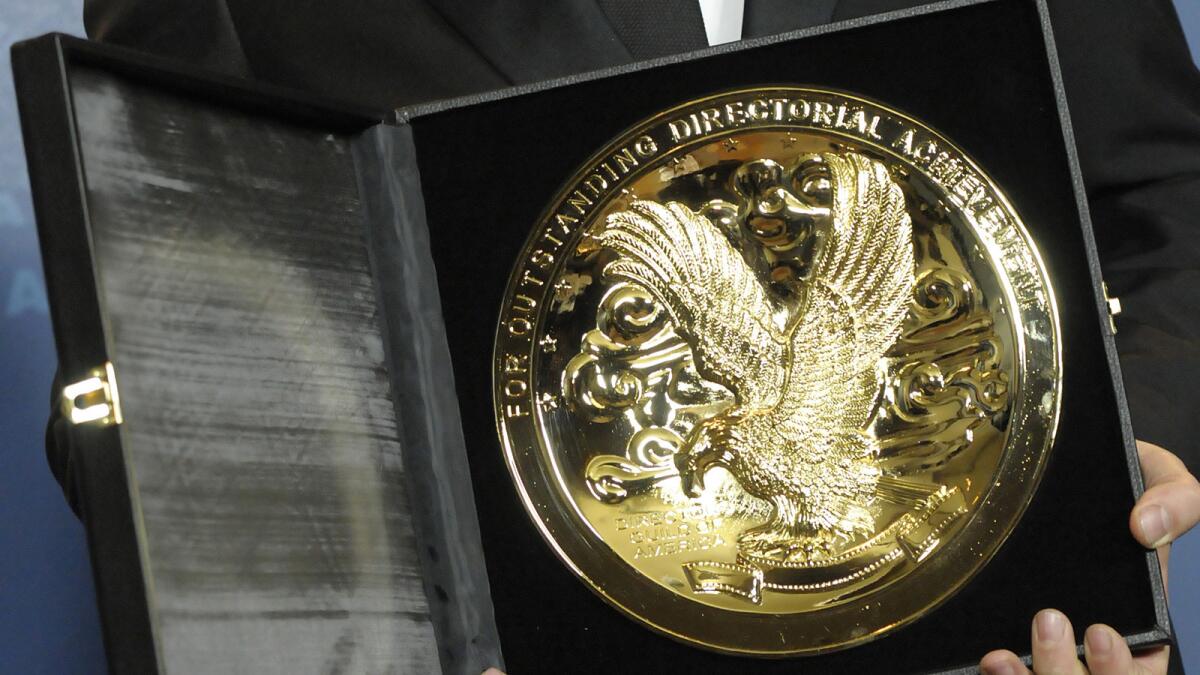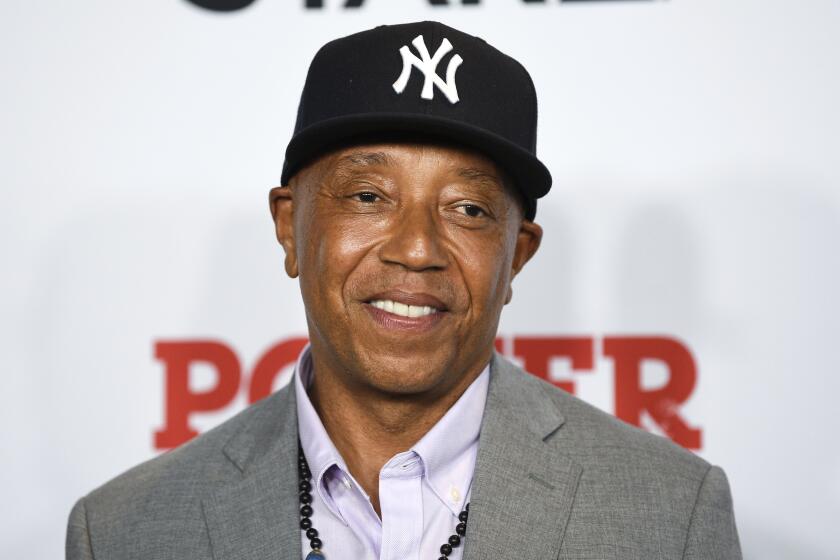DGA reaches deal with studios as strike fears loom. Next up is WGA

- Share via
In the first wave of negotiations over pay in Hollywood, the board of the Directors Guild of America said Saturday it had unanimously recommended to its members a tentative agreement on a new three-year deal with the Alliance of Motion Picture and Television Producers.
The DGA, the first union to kick off negotiations with studios in what is expected to be a fraught year of Hollywood labor talks, took about three weeks to reach an agreement, according to a statement from the union Thursday.
Terms of the agreement covering film and TV work, which were disclosed after it was approved by the union’s national board at a meeting Saturday, included a boost to streaming income for directors. The DGA’s current contract expires June 30.
The proposed contract could potentially establish a bargaining framework for two other unions, SAG-AFTRA and the Writers Guild of America, whose contracts expire in June and May, respectively. The WGA is scheduled to begin talks March 23, said two people familiar with the matter.
Studios and networks have begun preparing for the possibility of a strike by writers, who’ve been in a months-long conflict with agencies over packaging and other industry practices deemed harmful to writers. The union, which previously struck in 2007 for 100 days, has been particularly concerned that some of its members haven’t profited from the streaming revolution that has changed how writers, actors and directors are compensated.
The DGA contract includes improvements in minimum salaries and a nearly 50% increase in residuals for members working on original shows made for subscription video on-demand series, the union said in a statement. Combined with the gains from its previous contract in 2017, the residual for such shows is up nearly fivefold and now exceeds the average residuals earned for the most popular shows on network broadcasts, the union said.
The union had focused on improving terms for airing shows and films on subscription video on-demand services. Since 2016, the number of episodes made for so-called SVOD services has nearly doubled, before accounting for the new wave of major streaming services being launched, including Disney+, HBO Max, Apple TV+, and Peacock, the DGA said in its statement Saturday.
“As the streaming sea change we anticipated for so long is now overhauling the industry, and new services continue to enter the market, this pivotal deal boosting streaming residuals beyond traditional TV levels is a major victory for our members,” said DGA President Thomas Schlamme, who described it as “an incredibly complex negotiation.”
The proposed deal would also increase residuals by lowering the budget threshold for the made-for-streaming shows that can qualify for payments. And the agreement increases funding for the union’s health and pension plans, and includes commitments from studios to improve diversity and inclusion.
The DGA National Board approval puts the new three-year collective bargaining agreement on course to be finalized by ratification by the members. The membership has never rejected a proposed contract recommended by the board.
The negotiations committee, with more than 80 members, was led by co-chairs Jon Avnet and Todd Holland, and Russ Hollander, the chief negotiator and national executive director.
The DGA, which has more than 18,000 members, often begins negotiations well in advance of when its contracts expire in order to avoid creating instability in the industry.
The AMPTP, which represents the major studios, including Amazon and Apple, declined to comment.
More to Read
Inside the business of entertainment
The Wide Shot brings you news, analysis and insights on everything from streaming wars to production — and what it all means for the future.
You may occasionally receive promotional content from the Los Angeles Times.











